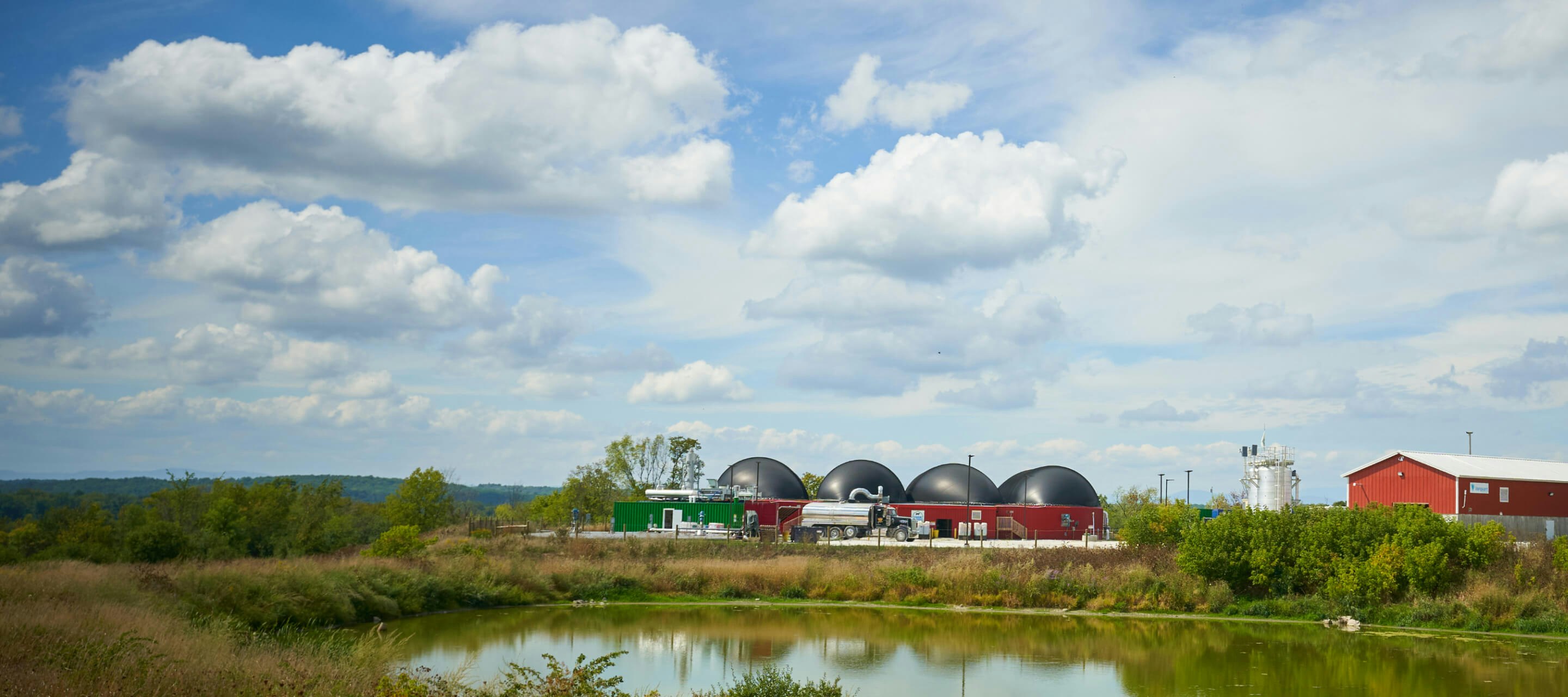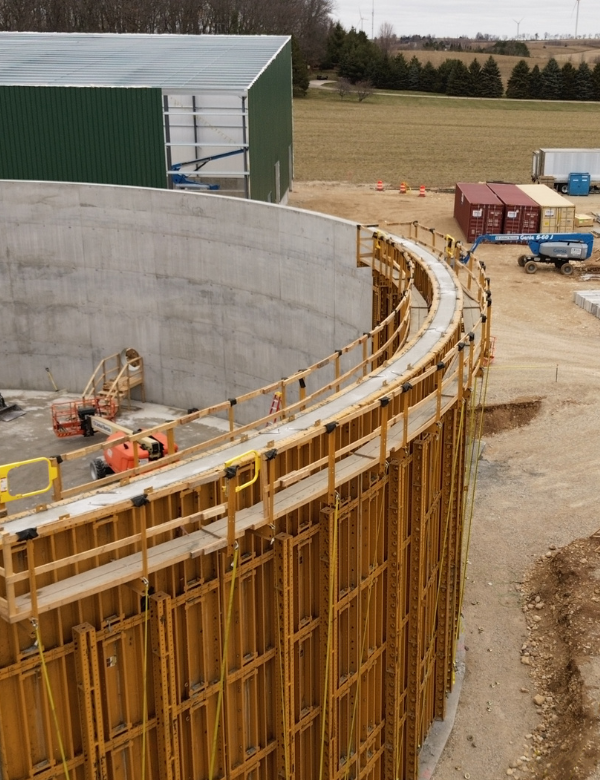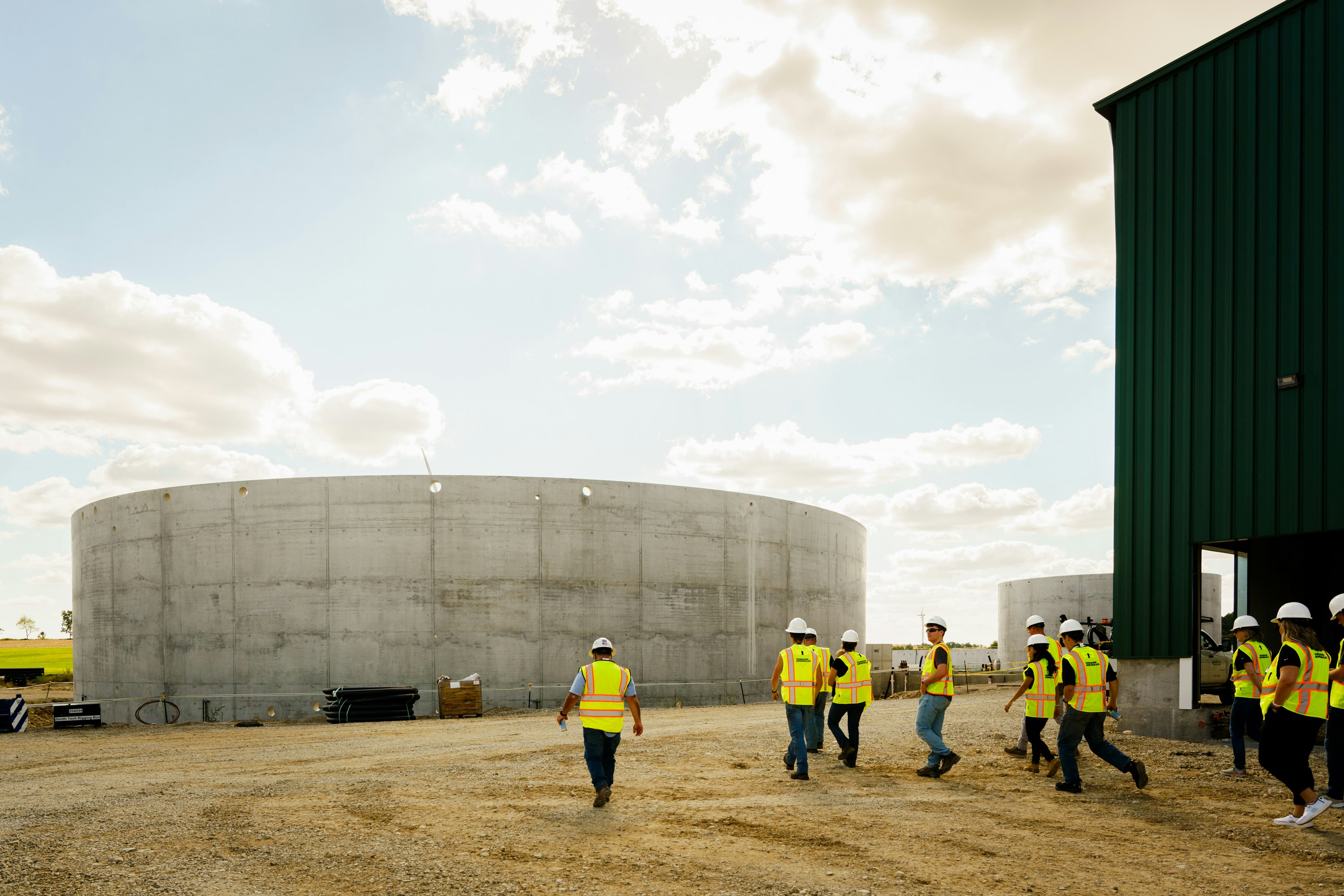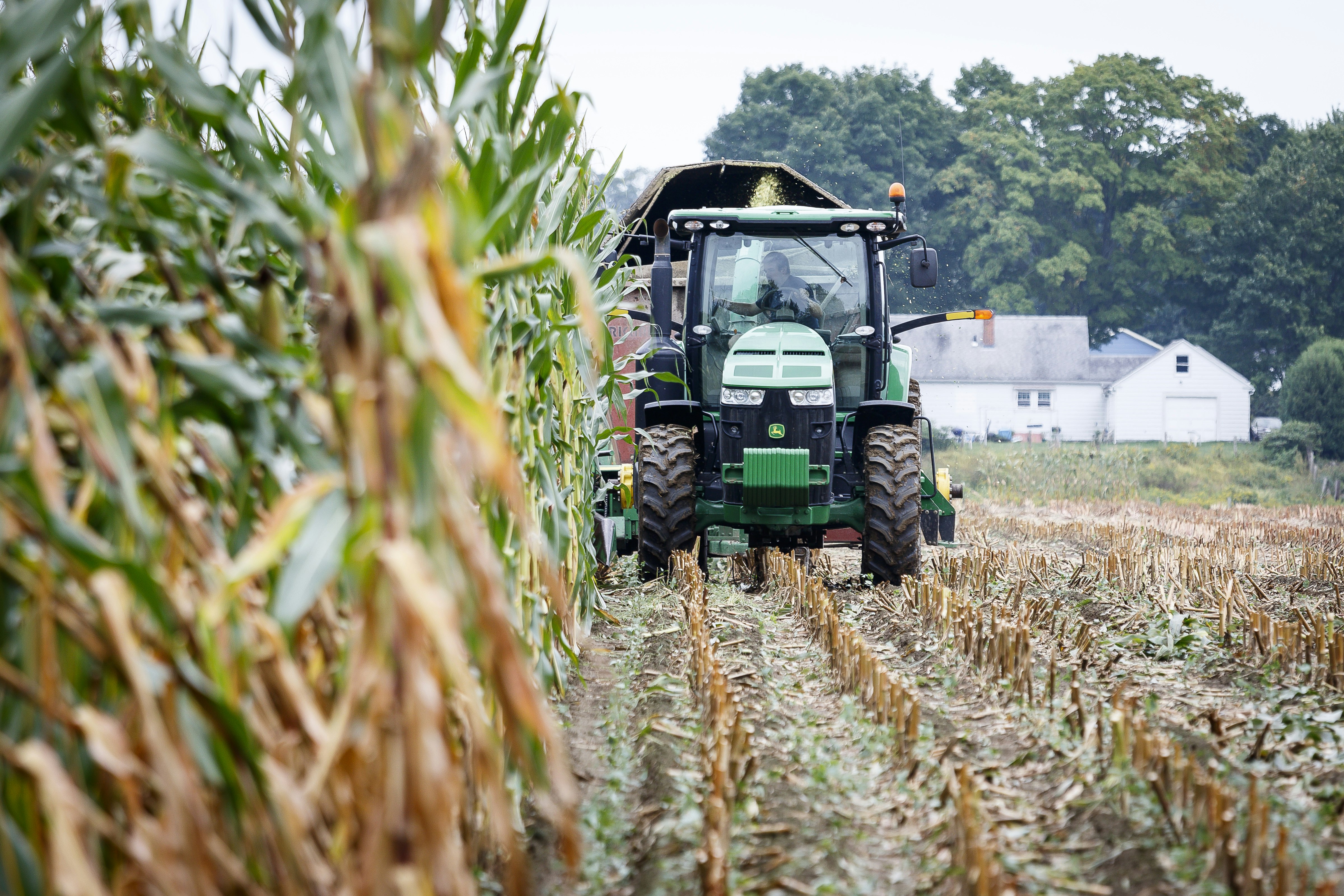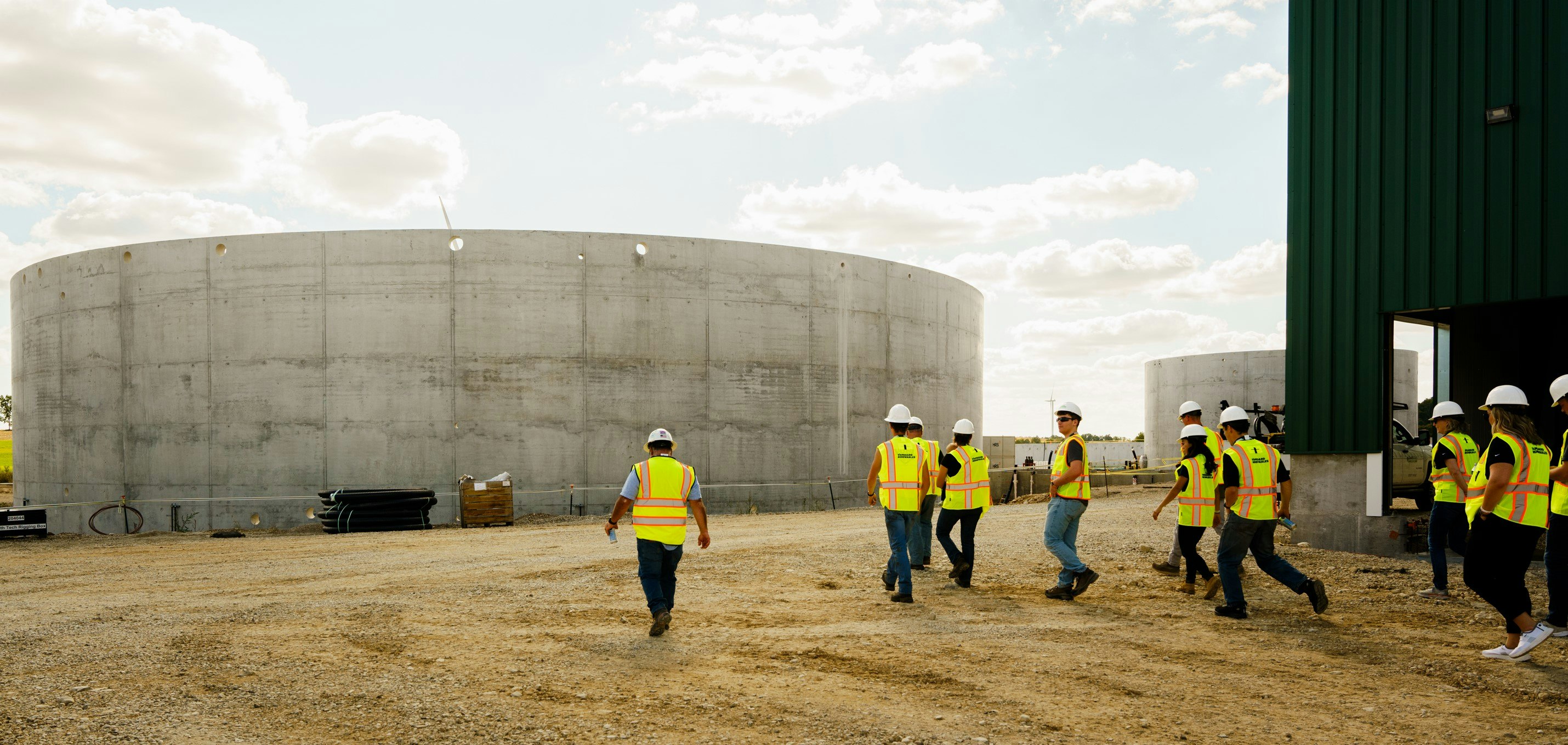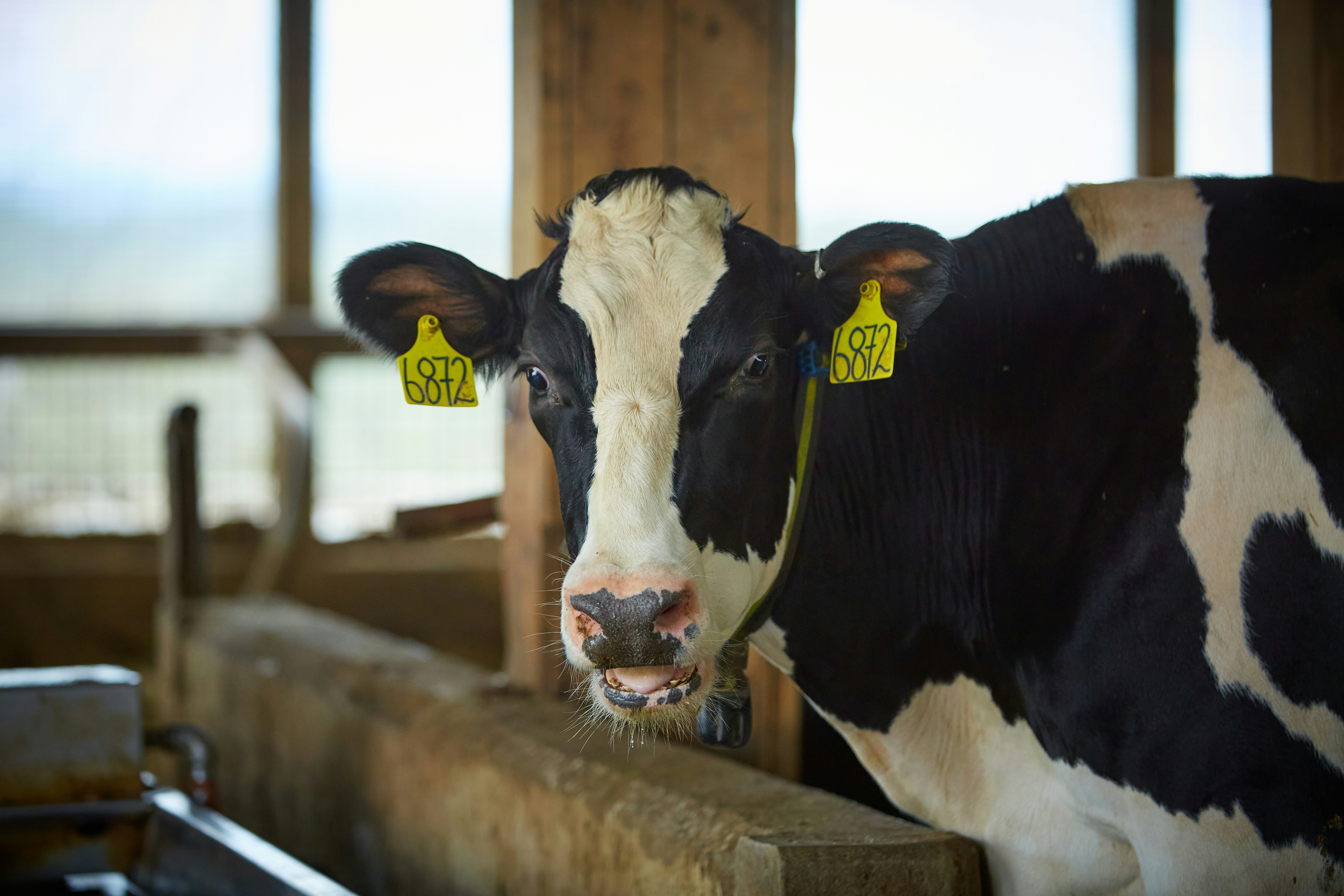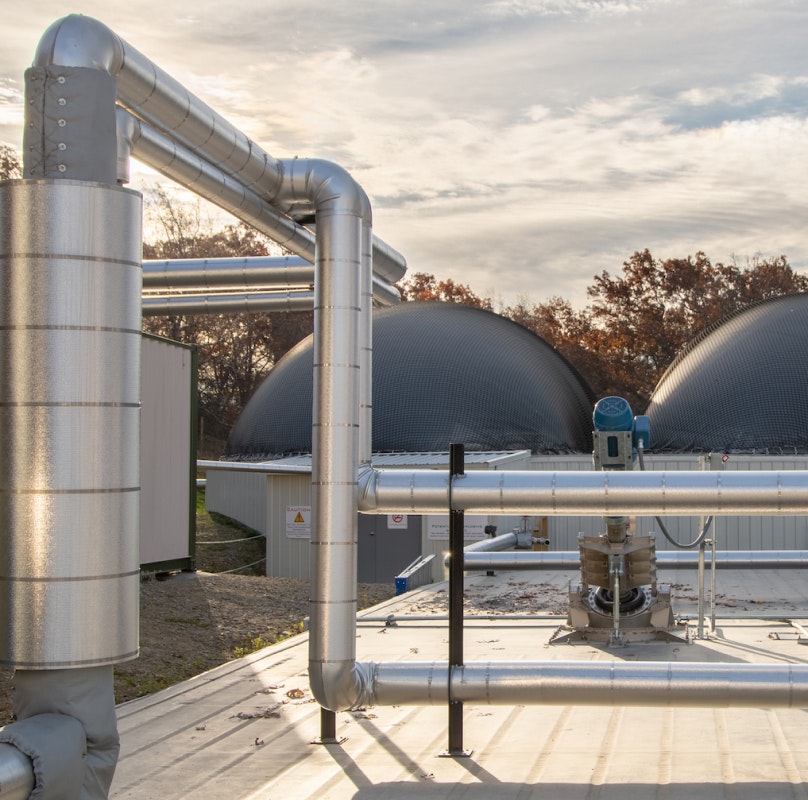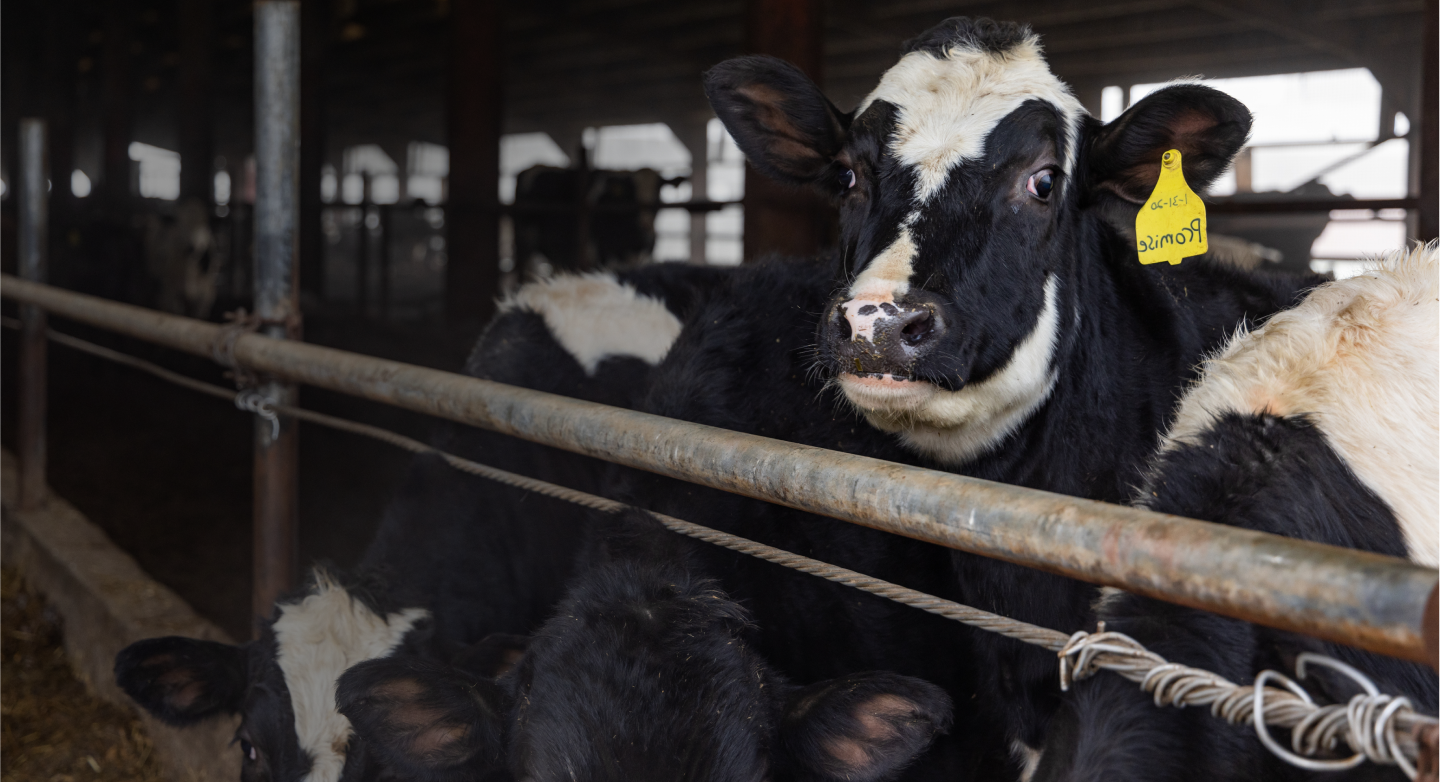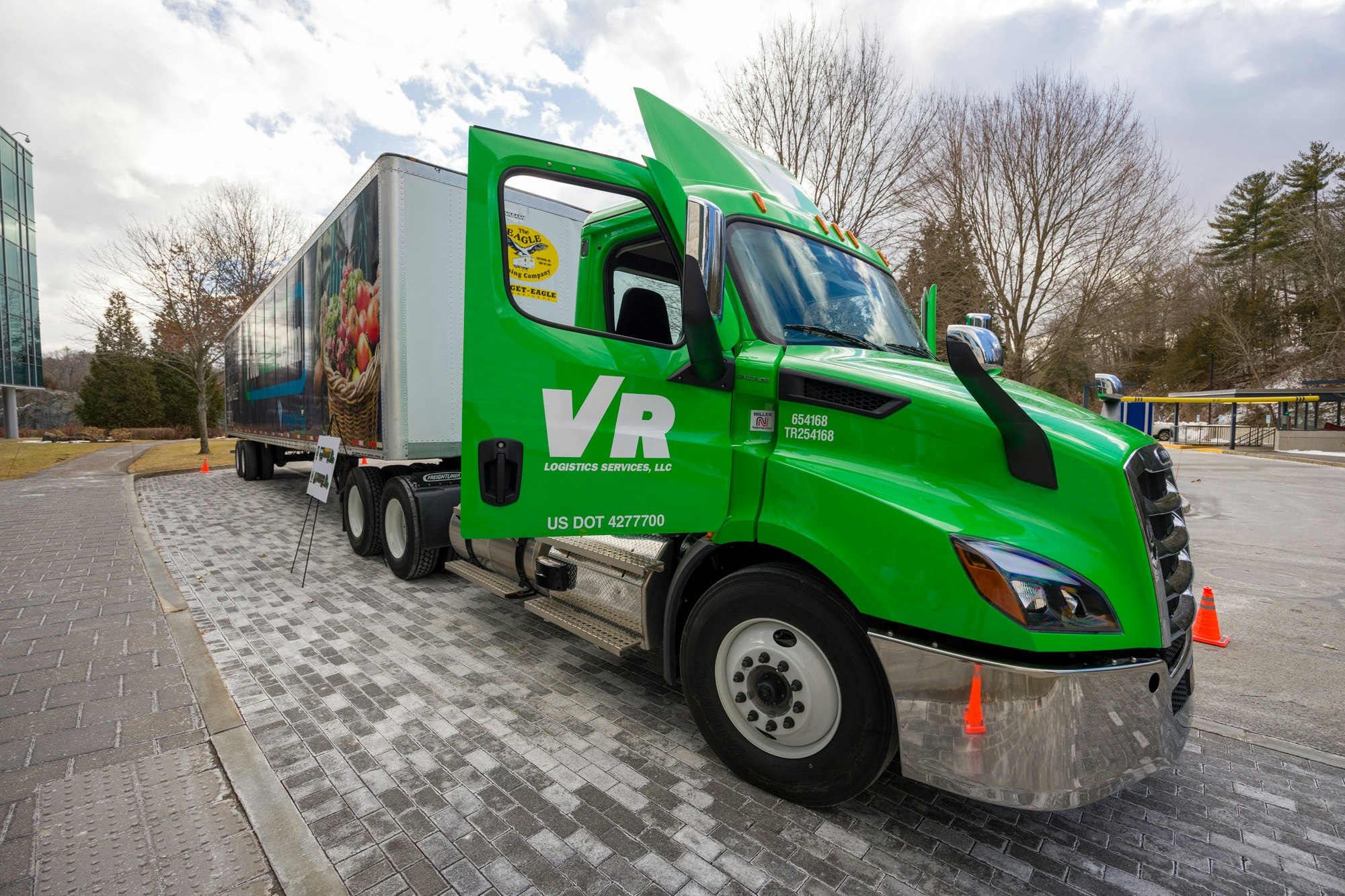Sustainable Manure Management for Small Dairy Farms: The Challenges and a Farm Powered® Solution

Manure management is a critical aspect of sustainable agriculture, particularly for smaller dairy farms where resources and space are limited. Methane, a greenhouse gas that is a leading cause of climate change, is released when manure is stored in open lagoons and land applied on the farm’s fields. According to the Environmental Defense Fund (EDF), “Livestock - primarily beef and dairy cows – account for the vast majority of agriculture methane emissions,” which is why organizations like the EDF are working to help farmers mitigate as much methane as possible.
Methane is not the only consideration when looking at how to sustainably manage the large amounts of manure produced on farms every day. Manure can also have other adverse environmental impacts, including nutrient runoff and groundwater contamination if not handled correctly. The pollutants naturally occurring in manure, such as bacteria, nitrogen, ammonia, and phosphates can contribute to water pollution, air quality degradation, and climate change and may even pose a public health risk to the communities in which the farms operate.
Smaller farms often face unique challenges when it comes to manure storage and management and as dairy farmers are working to become more sustainable, they are looking for creative solutions to enhance their manure management programs.
Small Farms: Tackling Big Issues
Multi-generational dairy farmers are an important piece of our nation's food supply chain, and in addition to running dairy operations, they are quickly becoming climate warriors. They know better than anyone how important it is to embrace regenerative agriculture practices, and how a changing climate is affecting their growing seasons along with how they operate their farms.
When it comes to manure, small farms typically have limited land area, making it difficult to allocate space for proper manure storage facilities. To put that in perspective, a dairy farm with 300 cows produces approximately 36,000 pounds of manure daily. The large production volume with limited land mass can lead to overcrowded storage areas, increasing the risk of runoff and therefore contamination of nearby water bodies. According to a paper from North Dakota State University Extension, runoff can affect aquatic life and even drinking water if a high enough quantity contaminates a nearby waterbody. This is undesirable to everyone, especially farmers. To improve their on-farm manure management strategy and become better stewards to the land, farmers are looking for innovative ways to handle their manure in environmentally friendly ways.
Smaller dairies may lack the financial resources to invest in sophisticated manure management systems. Traditional methods such as open pit composting or simple storage piles are common but can result in significant greenhouse gas emissions and odor issues.
One solution that dairy farms are looking into is anaerobic digestion given its many benefits including increased soil health, renewable energy generation, and diversion of food waste from landfills or incineration as suggested by the EPA and USDA. Unfortunately, anaerobic digesters tend not to be a financially viable option given their high capital cost and complex operation.
In addition to the high financial cost, small dairy farms face another hurdle when it comes to manure-only anaerobic digestion systems: the amount of manure needed to make a digester financially feasible is more than the farm's herd produces. The solution is codigestion. Codigester systems take both the manure produced by the farm along with nearby food and beverage waste to increase gas production and therefore economic feasibility without additional manure. Given that the food and beverage waste also has been shown to be a significant methane producer when put into landfill or incinerated, this solution enables the farm to harness the power of waste to create renewable energy and have a state-of-the-art manure management system that protects the environment.
Anaerobic Digestion as a Sustainable Solution
Anaerobic digestion is a biological process that converts organic waste, including manure, into biogas and nutrient-rich biofertilizer in the absence of oxygen. This technology offers several benefits for small farms such as green energy production, nutrient recycling, and odor and pathogen reduction.
Anaerobic digestion prevents the release of methane, a potent greenhouse gas, into the atmosphere. Instead, methane produced during the digestion process is captured and concentrated to be used as a direct renewable energy source for heating, electricity generation, and vehicle fuel. By capturing methane, anaerobic digestion helps mitigate climate change while providing renewable energy for businesses and communities. When the biogas is upgraded it becomes renewable gas, a drop-in replacement fuel for non-sustainably sourced fossil gas.
The biofertilizer produced during anaerobic digestion is a valuable renewable nutrient-rich fertilizer that can be safely applied to cropland, reducing the need for energy intensive synthetic fertilizers. Proper nutrient management helps improve soil fertility and crop yields while minimizing nutrient runoff, water pollution, and overall farm environmental impact.
Unlike traditional manure management methods such as open pit composting, anaerobic digestion reduces odor emissions by containing the decomposition process within sealed digesters. Post digestion, the nutrient rich biofertilizer is practically odor free since most of the organic material has been turned into valuable renewable gas. This is particularly beneficial for small farms located near residential areas, as it helps minimize nuisance odors and maintain positive relationships with neighbors and nearby communities.
Anaerobic digestion also effectively reduces pathogens present in raw manure, reducing the risk of waterborne diseases and protecting public health. The high temperature and retention time inside the digester reduce the number of harmful bacteria and parasites, ensuring that the resulting digestate is safe for land application.
Final Thoughts
Manure storage and management pose significant challenges for smaller farms, but anaerobic codigestion offers a sustainable solution to mitigate these challenges. By capturing methane, managing nutrients, reducing odors, and enhancing pathogen control, anaerobic digestion helps small farms operate more efficiently and more sustainably.
Vanguard Renewables® has been supporting multi-generational dairy farmers for over a decade. The Company builds, owns, and operates anaerobic codigesters that recycle manure and food and beverage waste from the manufacturing and retail sectors on dairy farms across the country. Vanguard Renewables’ Farm Powered® process provides its host farms with a guaranteed lease payment for 20+ years that ensures that its farmers have a predictable and dependable revenue stream along with the nutrient rich biofertilizer and separated solids which can be used as bedding for their herd at no cost.
This unique partnership between Vanguard Renewables and its host farms allows the Company’s farmers to focus on farming and Vanguard Renewables can focus on providing a manure management program that is not just good for the farm and the croplands, but also for the community and our planet.
--
Anna Raschke, Senior Engineer in Operations at Vanguard Renewables
